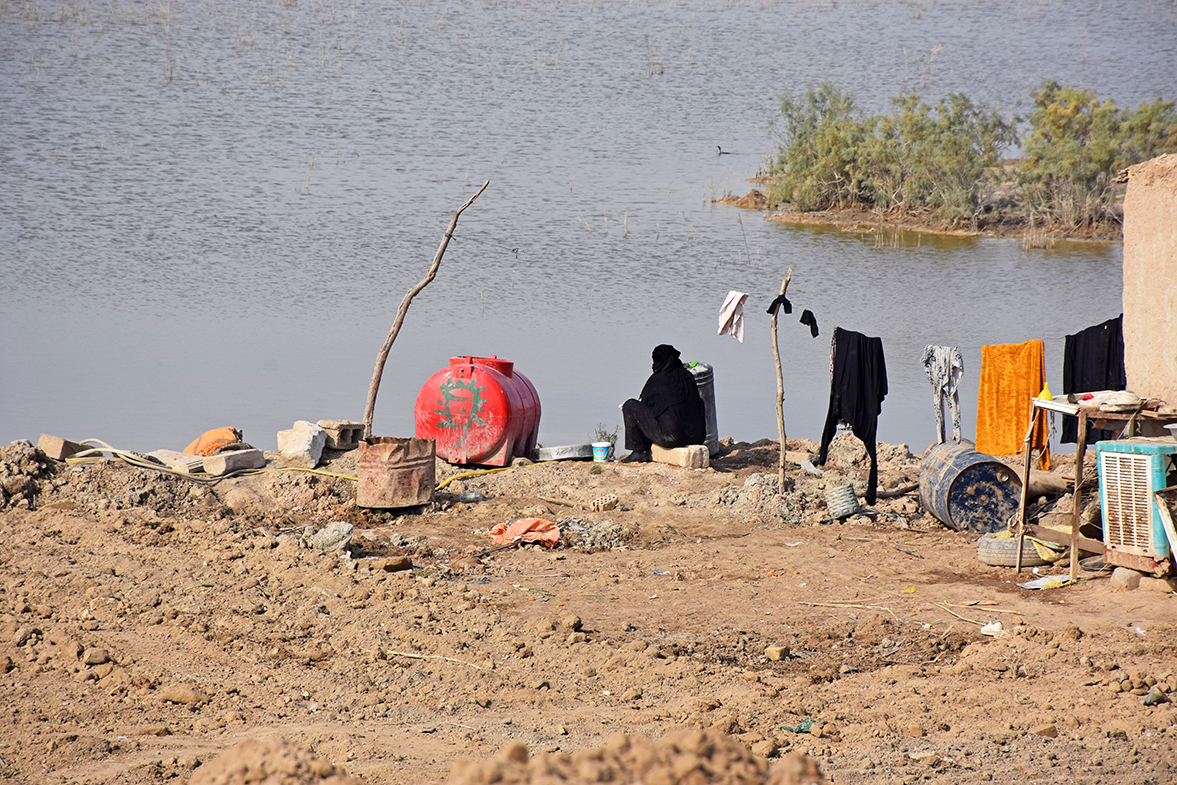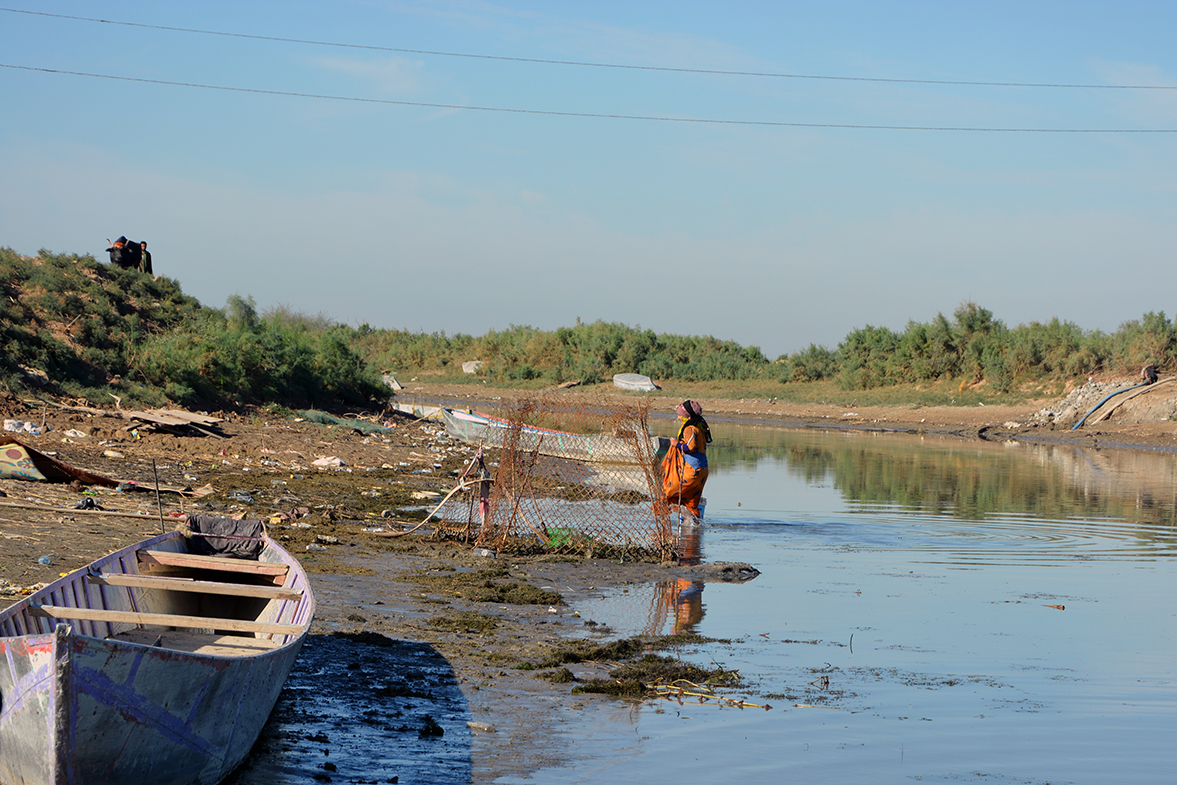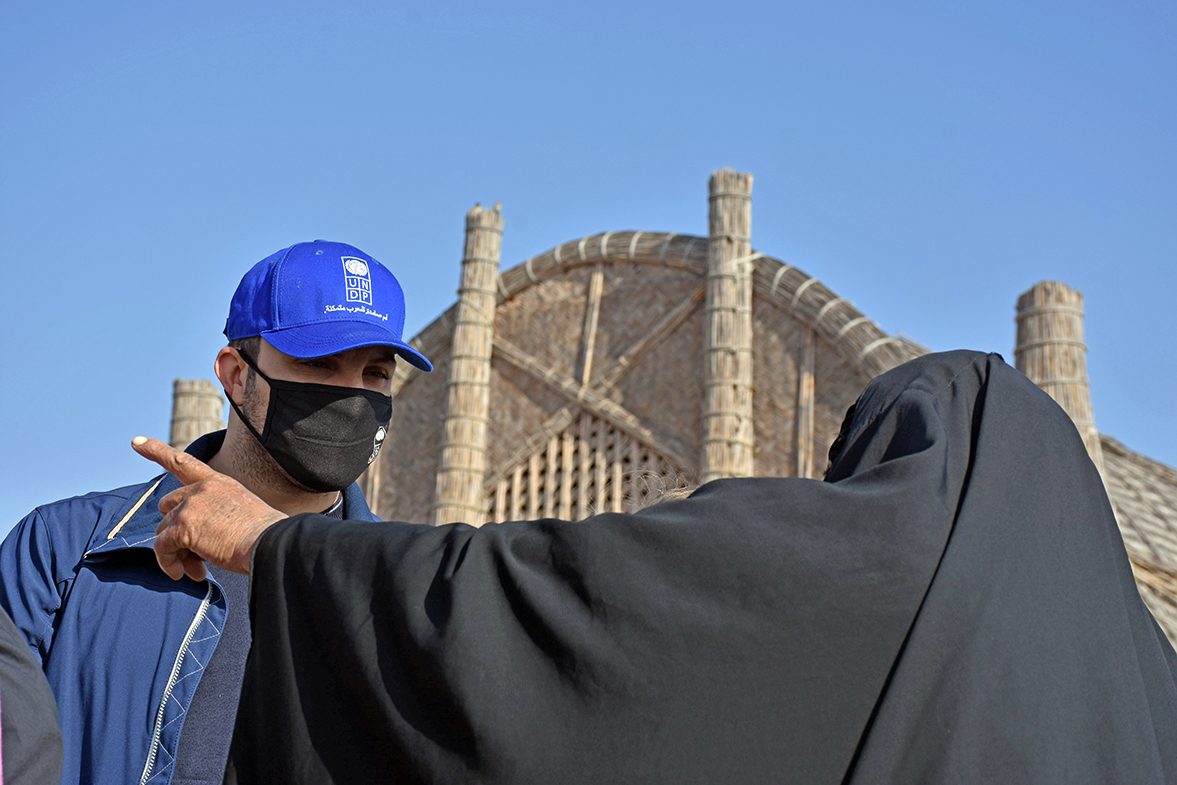Against increasingly difficult challenges the Iraqi marshland population is facing, including poverty, shortage of essential services like drinking water and electricity, and the need for health and educational facilities, climate change in the region constitutes a threat and an additional burden on the population and their livelihoods.
The everyday activities of marshland community women and their contribution to the rural household differs from life in urban communities. Like men, marshland women go about their daily work to cut and collect reeds as fodder for their buffalos, prepare milk and dairy products, herd the cattle, and look after their children and family needs. The daily activities of marshland women are made more difficult under the extreme weather conditions in Iraq, characterized by dry, hot weather in summer and rainy, cold weather in winter, coupled with increasing negative effects of climate change. Iraqi women in the marshland region are the first to suffer from water shortage caused by climatic changes and temperature rises, as the dry weather impacts buffalo herding, causing the animals to look for water sources farther afield. Buffalos in the marshland are sensitive to water quality and rising temperature and the marshland population often leave areas in which water quality is deteriorating due to water scarcity and extreme weather conditions. The relationship of the marshland population and women in particular, with buffalos dates back thousands of years, and the inhabitants of these areas rely on the animals to survive.
"Our livelihood depends on buffalo breeding from which we sell milk and dairy products," Says Um Qasim, mother of 11 children from the Hawizeh Marshes. "Our livestock drink from the marshland water, and in drought conditions we are compelled to provide water from other sources further afield."
The past years have seen the devastating impact of drought on local agriculture and livestock in the marshland areas, leading people to abandon their communities and traditional occupations and seek better lifestyles in urban centers. This has had far-reaching impacts on families and social cohesion in the area.
Um Issa, who lives with her ten children in a modest house built of mud and reed in the Hawizeh Marshes, paints a bleak description of the negative impact of drought and climate change. "When the marshland dries up, we nearly starve because droughts affect humans and animals alike. Men leave the marshland for the cities and seek other jobs in the police force or the army, leaving their families in sordid poverty and hunger, which forces us to shoulder greater responsibilities to support our families.”
The Marshes (Al-Ahwar) are home to many natural systems and are considered an important source of eco-tourism, due to distinctive cultural features that date back to the Summarian era and their rich biodiversity. Flourishing eco-tourism creates jobs for youth and vulnerable women, who are disproportionately affected by climate change. It also facilitates gender equality, in addition to reducing migration caused by climate change and boosting population security.
Eco-tourism encourages women to engage in traditional industries that contribute to improving economic conditions for their families. Iraq's marshland women also engage in traditional handcraft industries to support their households.
Despite the challenges faced by marshland women, they are known for working hard to provide for their families and are an example of patience and resilience.
As part of efforts to address the effects of climate change in Iraq, UNDP in partnership with the Iraqi Ministry of Health and Environment and in cooperation with the Maysan Governorate, is engaged in SDG Climate Facility project: Climate Action for Human Security project in Al Hwaizeh Marshlands with the support of the Regional Bureau for Arab States (RBAS) and funded by the Swedish International Development Agency (SIDA).
This national project aims to support the marshland communities against threats caused by climate change such as recurrent droughts. These dangers are considered a threat multiplier to the local population and a source of escalating poverty rates and cause of migration due to water scarcity and deterioration of the ecological system, which adversely affects livelihoods.
The project has provided innovative solutions to supply drinking water to the most vulnerable areas of the Hawizeh Marshes through installation of solar-powered water treatment plants. It also aims to diversify sources of livelihood through eco-tourism development projects that provide employment opportunities for men and women. Eco-tourism contributes to diversifying household income and provides additional sources of livelihood for the local communities to increase their resilience and reduce migration.

 Locations
Locations


